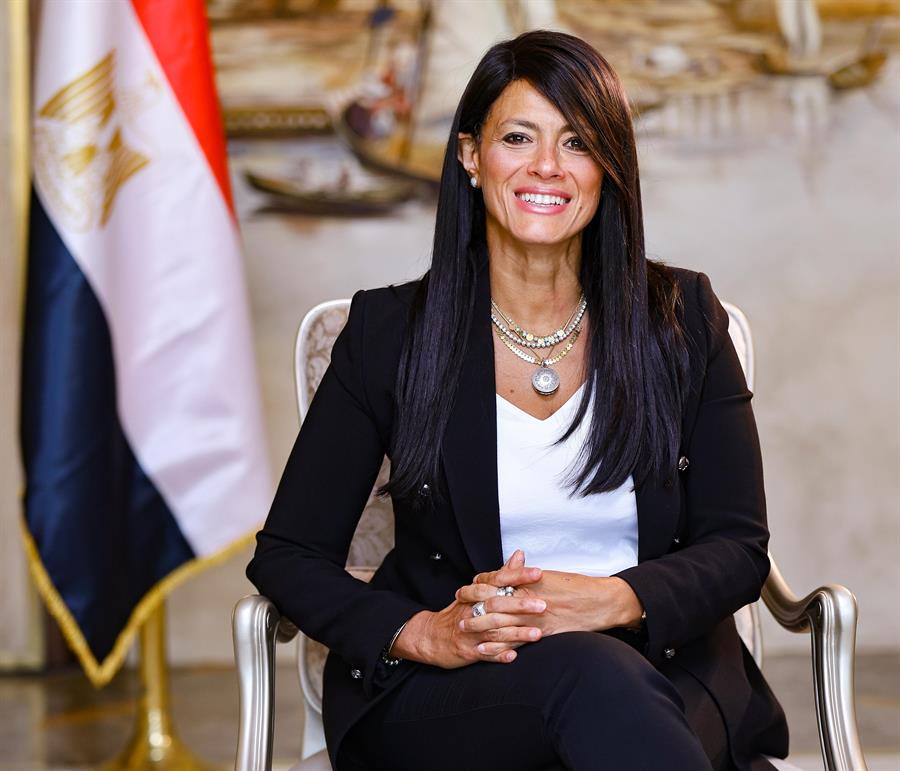Within the framework of the activities of the first session of the summer training program for university students 2021: The Ministry of Planning and Economic Development holds a series of lectures on the most important programs and projects of the Ministry

08 August 2021
In light of the guidance of Dr. Hala El-Said, Minister of Planning and Economic Development, the ministry held a series of interactive lectures and workshops on the most important programs and projects of the ministry, which the leaders of the ministry attended.
This came within the framework of the activities of the first session of the summer training program for university students 2021, which was launched by the ministry in the middle of the month last July.
During the first week of the workshops, Dr. Sherifa El-Sherif, Executive Director of the National Institute for Governance and Sustainable Development (NIGSD), the training arm of the Ministry of Planning and Economic Development, reviewed the historical development of the establishment of NIGSD and the strategy and methodology of its work, which is "Governance for Sustainable Development".
El-Sherif explained that NIGSD is entrusted with the responsibilities of training, research, and advisory services to enhance good governance practices to serve Egypt’s 2030 vision through sustainability awareness initiatives as well as developing strategies, and monitoring Egypt’s ranking according to international indicators in governance and sustainable development.
El-Sherif pointed out that NIGSD’s vision is to become the leading center of excellence in providing consultancy, research, and training in MENA.
She referred to NIGSD’s approach to expanding training partnerships with the most prestigious regional and international institutes to provide a distinguished set of training programs.
The lectures included a presentation by Dr. Jamil Helmy, Assistant Minister for the Implementation of the Sustainable Development Goals, on the role of the Ministry of Planning and Economic Development in the developmental planning of the state, and the development of the planning system, as Egypt’s Vision 2030 was the starting spark for development and transformation from budgeting items to budgeting programs and performance.
Helmy explained that the program and performance budget aims to link the allocations dedicated to each party in the country to the development goals to be achieved, stressing that the citizen is the first target for development.
Helmy also referred to the presidential Initiative (Decent Life), stressing that it is the largest project in the history of Egypt.
Helmy highlighted that the inclusion of the presidential Initiative (Decent Life) in the “SDG Good Practices of the United Nations Department of Economic and Social Affairs came for several considerations as it meets all the 17 UN SDGs.
For his part, Professor Tariq Abdel-Khaleq, Head of the Human Resources Sector at the Ministry, explained the importance of training in refining the skills and developing the capabilities of state workers.
Abdel-Khaleq stressed that training in the state’s administrative apparatus is no less important than education.
The lectures included a presentation by Dr. Heba Mugheeb, Head of the Regional Planning Sector at the Ministry, where she referred to the definition and requirements of local development and the relationship between the economic, social, and technical aspects of development, and the importance of taking into account local characteristics when setting development plans.
Mrs. Amira Hossam, Assistant Minister of Planning for Sustainable Development Affairs, gave a lecture that dealt with several elements, including the basic definitions related to sustainable development, green economy, and green bonds.
During a lecture by Professor Tariq Sadiq, Project Manager of the Administrative Capital explained that the total area of the administrative capital is 170,000 acres, noting that the first phase of it is an area of 40,000 acres, containing multiple residential areas, the financial and business district.
Moreover, the new capital includes the government district area, which contains the headquarters of the Egyptian Cabinet and 31 ministries.
Engineer Mohamed Abdel Azim, Director of the Spatial Informatics Infrastructure Project, reviewed the digital transformation projects at the state level implemented by the Ministry of Planning, including the birth and death registration system at the level of the Republic in real time for about 5400 offices.
Ms. Aya Nawar, Deputy Head of the Sustainable Development Unit at the Ministry, and Ms. Lauren Habib, a specialist in the unit, also gave a presentation that included the definition of sustainable development and its principles, and an explanatory video of the 17 UN SDGs 2030 was also shown.
The presentation also dealt with examples of sustainable development in the life of every individual in society, in addition to clarifying the characteristics of sustainable development, which is a process of transformation from one generation to another, as it occurs at global, regional, and local levels.
The presentation touched on the three dimensions of social, economic, and environmental development, the history of the development of sustainable development from 1972 to 2015, as well as the impact of the Coronavirus on the global economy.
Habiba Salama, a member of the Technical Office of the Deputy Minister of Planning, gave a presentation on the integrated system for preparing and following up on the investment plan.
Salama explained its objectives, components, methods of preparing and following up the investment plan before the system, as well as the steps that were taken to activate the electronic system, where the investment plan’s data were reviewed, corrected, and updated.
Training programs were also implemented on the use of the integrated electronic system and its components for the employees of the ministry and the various support bodies, in addition to linking the system of the Ministry of Planning (ISIPPM) and the government financial information management system (GFMIS in the Ministry of Finance).
During the lectures and workshops, the discussion was opened with the students, receiving their suggestions and inquiries about the Ministry’s fields of work, and urging them to participate in the youth initiatives launched by the Ministry to develop the capabilities and skills of young people and prepare them to enter the labor market.









